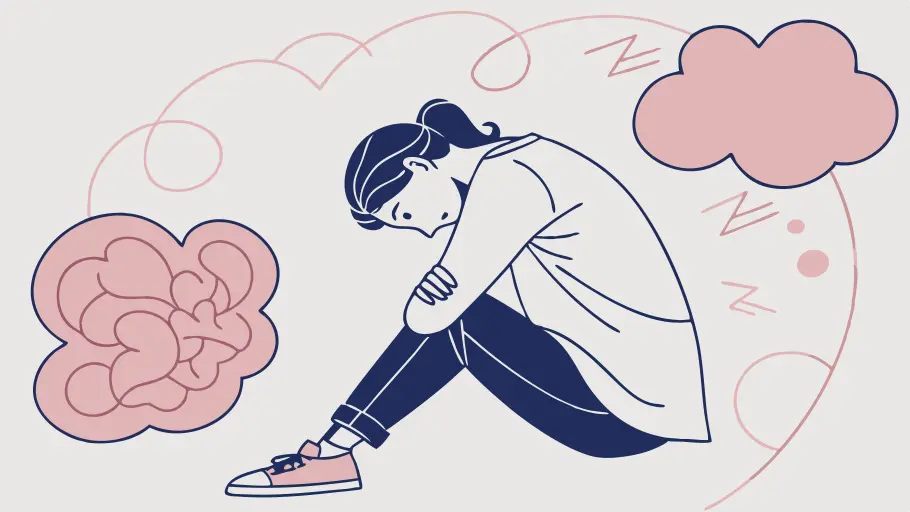Table of Contents
You’ve done everything you’re supposed to – gone to bed early, avoided caffeine in the afternoon, and used dark curtains. But you still feel tired all the time. Could there be something more going on?
Here’s the deal: there’s a big difference between just being tired and being truly worn out by issues such as inflammation and fatigue. One goes away when you rest, but the other stays even when you try your best.
How are inflammation and fatigue connected?
Your body is very smart. When something is wrong – like fighting an illness or dealing with stress – it starts inflammation to protect you. Think of it like your body’s security system.
Here’s where it gets interesting: those things that cause swelling (called cytokines) don’t just stay in one place. They go to your brain and change how you feel energy. These things can make your brain save energy, so you feel tired.
When inflammation becomes chronic – which can happen with ongoing pain conditions – your body gets stuck in this low-power mode. It’s like someone dimmed your internal lights and forgot to turn them back up.
Signs Your Tiredness Might Be From Inflammation
Not sure if nflammation is making you tired? Watch out for these signs:
You feel tired even after good sleep
This isn’t just because you stayed up late. It’s the kind of tired where you sleep for 8 hours but still feel worn out.
Brain fog, low mood, or trouble focusing
Do you keep forgetting where you put things? Studies show that things in your body that cause inflammation can mess up how you think and remember, making you feel like your brain is foggy.
You feel sore, even though you didn’t exercise.
Did you wake up feeling tired, like you ran a race, even though you didn’t do much the day before? It could be because of inflammation.
Your symptoms get worse after doing very little.
If making breakfast makes you want to take a nap, your body might be experiencing something called post-exertional malaise. This is a sign of tiredness caused by inflammation.
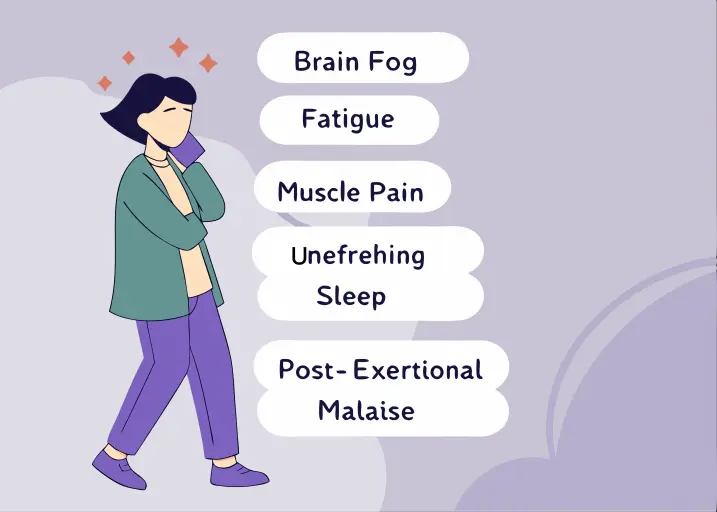
4 Simple Ways to Reduce Inflammation and Reclaim Your Energy
Want to fight inflammation and feel more energetic? Here’s how to reduce inflammation without changing your whole routine:
1. Eat More Anti-Inflammatory Foods
The food you eat can either make inflammation worse or help fight it.
Here are some of your new best friends:
- Fish like salmon and mackerel, which have a lot of omega-3s
- Colorful berries (nature’s antioxidant bombs)
- Leafy greens and cruciferous veggies
- Olive oil, avocados, and nuts for healthy fats
Don’t eat these:
- Foods that are made in factories and have lots of ingredients.
- Sugars that are added to food, which can make your body inflammation.
- Foods that can make you tired
Think about adding foods that improve mitochondrial function. This can make your diet changes even more helpful.
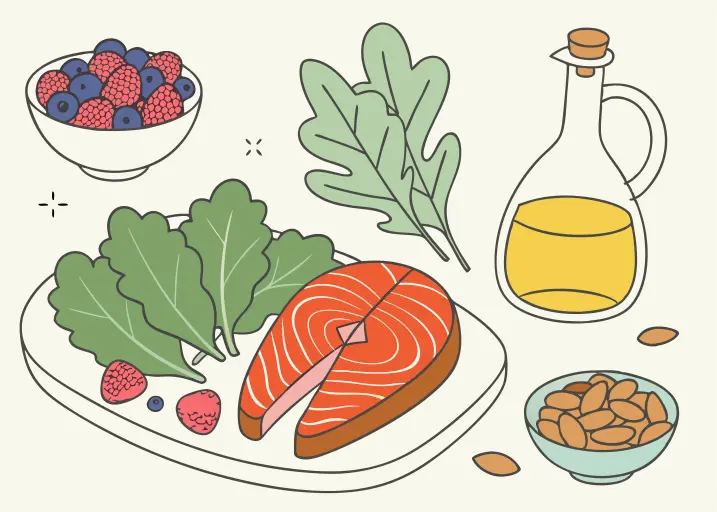
2. Move Slowly but Regularly
When you’re very tired, exercise might seem like a bad idea. But here’s the problem: the right kind of movement can help with inflammation in your body.
The main thing is “correct”:
- Walk every day (even if it’s just for a little bit)
- Do easy yoga or stretching
- Do exercises that are easy on your body to make you feel more energetic
Don’t do hard workouts that could make inflammation worse if you’re tired.
It’s important to be consistent, not just try really hard, when you’re tired because of inflammation.
3. Sleep Smarter, Not Just Longer
Inflammation and not sleeping well make each other worse. You can stop this cycle by improving your sleep:
- Try to go to bed and wake up at the same time every day, even on weekends.
- Make a routine to help you relax before bed (no phones or computers, turn down the lights, make the room cool).
- Consider the perfect nap length for a daytime recharge
- Eat foods with magnesium, like pumpkin seeds or spinach, before bed. They can help you relax.
Here’s a helpful tip: If you often feel tired in the afternoon, don’t just push through it. Look at what you eat for lunch and what you do in the middle of the day.
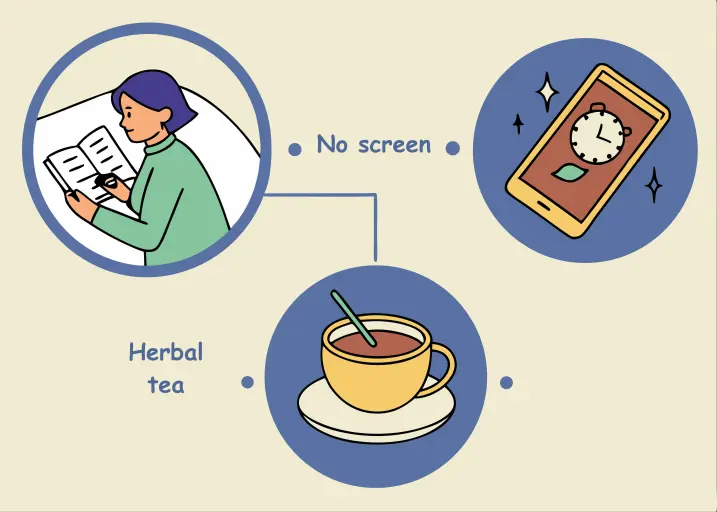
4. Take Care of Your Gut
Here’s something surprising: a lot of the inflammation in your body starts in your gut. Experts have found that if your gut is inflamed, it can make you tired all over, even if you don’t have any tummy troubles.
Help your gut by:
- Foods with a lot of fiber help good bacteria grow.
- Foods with probiotics, such as yogurt, kimchi, or kombucha
- Stay hydrated for energy
Cut back on:
- Sweeteners that are not natural can mess up the good bacteria in your gut.
- Alcohol, because it can bother your gut.
Some people see how their energy changes when their blood sugar changes. This helps them understand their inflammation.
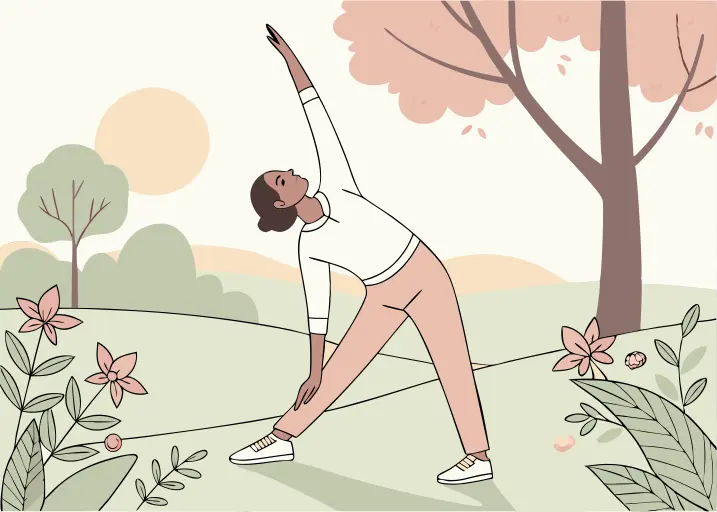
When to Talk to a Doctor
It’s good to try things yourself, but sometimes you need a doctor. See a doctor if:
- You’ve been tired for over two weeks, even after trying to feel better
- You have a disease like rheumatoid arthritis or lupus, which can cause tiredness because of inflammation.
- You have weight changes, pain, or a fever that you can’t explain
- You started feeling tired after you were sick with a virus, and it hasn’t gotten better.
Don’t let people say your tiredness is “just stress” or because you’re “busy.” It could mean there’s something else making you tired that needs to be checked out.
The main point
It’s normal to feel a little tired sometimes. But if you’re always tired and it doesn’t get better when you rest, don’t just drink more coffee or energy drinks.
When you reduce inflammation, you’re not just getting rid of tiredness. You’re also improving your overall health. Many people can start by doing things like having an energetic morning routine or getting more sunlight each day. This can help them feel better.
f you need energy fast, try things that don’t have caffeine. Some people feel better with natural electrolytes or liquid vitamin B12. But, it’s still best to fix the problems that cause inflammation.
Start with small changes. Do them regularly. Your future self will have more energy.


